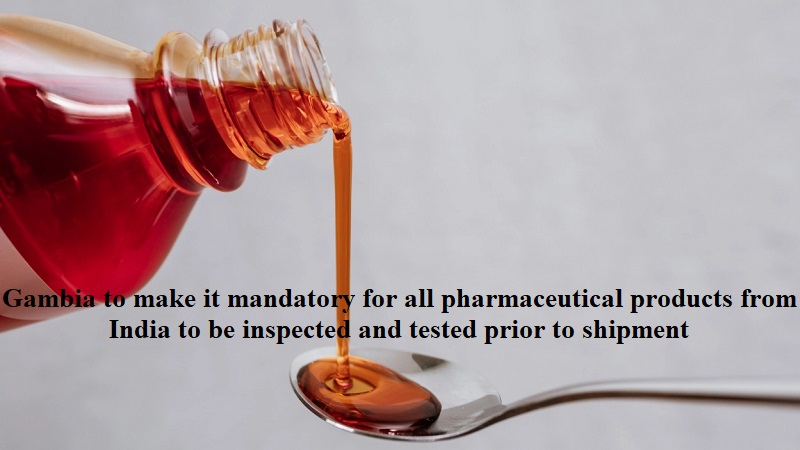
Gambia will implement a new requirement starting from July 1, mandating the inspection and testing of all pharmaceutical products from India before shipment. This decision, revealed in Gambian government documents reviewed by Reuters, is the first known restriction on national exports following the deaths of numerous children associated with Indian-made cough syrups.
The introduction of this rule reflects the reevaluation by governments of their dependence on India’s $42 billion pharmaceutical industry since the contamination incidents came to light last year. India currently supplies almost half of the pharmaceuticals used in Africa. In April, the Indian government stated that its officials had held meetings in Africa to ensure the continued smooth flow of its drug exports after at least 70 children in Gambia died from consuming the cough syrup last year.
Gambia’s new measure aims to address concerns regarding substandard and counterfeit medicines entering the country. In a letter from Markieu Janneh Kaira, the executive director of Gambia’s Medicines Control Agency (MCA), to India’s drug controller general, Rajeev Singh Raghuvanshi, dated June 15, it was revealed that the MCA had appointed Quntrol Laboratories, an independent inspection and testing company based in Mumbai, to conduct inspections and issue a Clean Report of Inspection and Analysis (CRIA) for all shipments from India.
The letter explained that Quntrol would verify documents, physically inspect the consignments, and take samples for laboratory testing. If the products conform to the required standards, Quntrol would issue the mandatory CRIA document. However, if the quality of the products is deemed non-compliant, the shipment would be quarantined or seized by the MCA, and necessary regulatory actions would be taken.
According to Janneh Kaira, this rule currently applies only to India. As of June 1, India has already made testing mandatory for all exported cough syrups.
The World Bank is financing a testing laboratory in Gambia, although it remains incomplete. The letter mentioned that Quntrol would send samples for testing to an approved analytical laboratory designated by the MCA, without specifying whether the laboratory would be in India or elsewhere.
Last year, at least 70 children, mostly under the age of 5, died in Gambia due to acute kidney injury linked to adulterated cough syrups from India. The World Health Organization stated that these cough syrups contained toxic substances such as ethylene glycol and diethylene glycol, commonly found in car brake fluid and unsuitable for human consumption. Unscrupulous actors may use these cheaper ingredients as substitutes for propylene glycol, a key component in syrupy medicines, thereby compromising their safety.

Post Your Comments